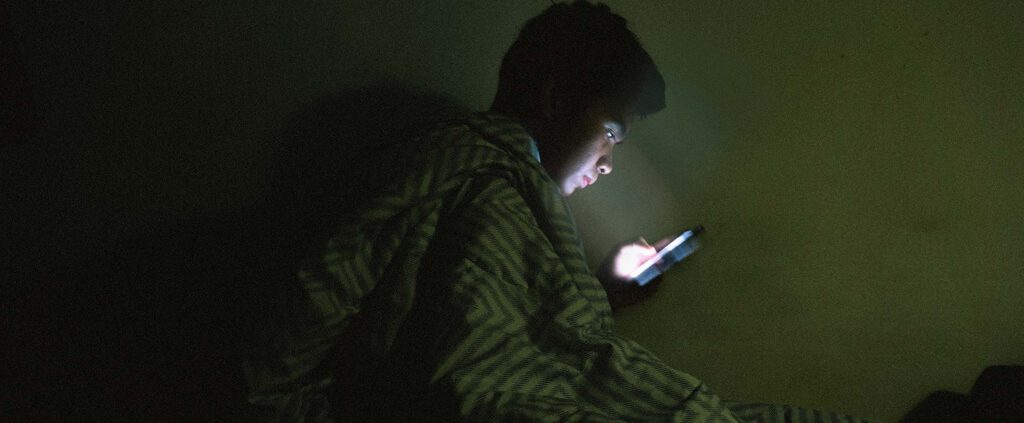Two Battles I Face Every Day: Sleeping and Staying Awake
Written by Cassie Watson, Australia
I face two battles every day of my life: the battle to sleep and the battle to stay awake.
Sometimes when I can’t sleep at night, I know exactly why. I’ve stayed up too late watching TV, or I’ve left my phone next to my bed and caved to the infinite scroll.
Other times, I’ve got my sleep hygiene down pat. My phone is out of reach, I’m sipping herbal tea, and I’ve wound down with a relaxing book—but sleep still eludes me. My mind whirls with worries, what-ifs, and tomorrow’s bottomless to-do list.
I’ve got a handful of strategies I use when this happens. Sometimes I put on Dwell (an audio Bible), relaxing music, or a podcast designed to lull you to sleep. Other times I get out of bed and pray or read until my eyes start to droop. Whatever will take my mind off my lack of sleep.
But these are quick fixes. To break out of the cycle of nightly insomnia, I need to remember God is sovereign. That means He’s in control of all things, so I don’t have to be. He’s the only one whose every purpose will come to pass. Instead of trying to control every part of my life, I can give everything I’m worrying about over to Him and trust His plans are better.
But there’s also something deeper going on than just my failure to believe that God is sovereign. My inability to sleep comes, paradoxically, from my failure to stay awake.
Think like a Narnian
In C. S. Lewis’s The Silver Chair, Eustace, Jill, and Puddleglum are on a mission to rescue Prince Rilian, heir to the Narnian throne. They find him enchanted and trapped in an underground cave. The witch who’s holding Rilian prisoner interrupts their rescue and starts casting a spell over the group—she produces a perfumed smoke from the fire and gently strums an instrument. The heroes grow sleepy and dull-headed, and they believe the witch when she tells them lies about the underworld being all there is—there’s no Narnia, no outside world, no sun, and, crucially, no Aslan. It was all a dream.
When it looks like they’re all about to fall completely under this spell, Puddleglum gathers the presence of mind to stamp on the fire in the hearth, breaking the enchantment. Eustace, Jill, and Rilian suddenly awake and are brought back to reality. They remember who they are and who sent them on this quest: Aslan. All at once, they’re thinking and acting like Narnians again.
I spend too much time under a similar enchantment. My world narrows to what I can see around me. Every day I attack my inbox and try to hold my task list at bay to reach . . . Peace? Rest? The end of my to-do list? But the list will never end; there’s always more to do. Seeking peace in finishing my work is like hopping on a train in Sydney and expecting to make it to London.
The only way to reach true, lasting rest is to find it in Jesus.
Satan loves it when we fall for either of these lies: when we stay awake “eating the bread of anxious toil” (Psalm 127:2) or snooze our way through life, numb to the truth. In both cases, we lose sight of the reality of God in our lives.
C.S. Lewis said that the difficulty isn’t in trying to find where God is. “The real labour of life is to remember, to attend. In fact, to come awake. Still more, to remain awake.”[1]
Scripture likewise urges us to stay awake and alert. Knowing that Satan longs to devour us, Peter writes, “Be sober-minded; be watchful” (1 Peter 5:8). Paul says Christians should live differently to unbelievers: “Let us not sleep, as others do, but let us keep awake and be sober” (1 Thessalonians 5:6).
I need to remain awake. To stop trying to craft my own story and instead remember daily that I’m already part of the greatest Story: God chose me, a ruined sinner, and set His love upon me. He’s delivered me from “the domain of darkness” and transferred me to “the kingdom of His beloved Son” (Colossians 1:13).
My life must now be shaped around waiting for Jesus’s return, when I’ll see Him face-to-face and the kingdom will come in full. To do this practically, I’ve found it immensely helpful to consider my habits and rhythms. Are my daily and weekly routines shaped around the reality of the coming kingdom? Or are they distracting me from Jesus?
In recent months, I’ve been seeking to make little changes, like starting my day with Scripture and prayer instead of with my phone, and fasting weekly to grow a greater hunger for God and seek Him in prayer. By keeping Jesus central in my life and heart, my priorities shift toward eternal things.
While this doesn’t banish worry completely, I’m facing far fewer sleepless nights. I know the problems and tasks that used to worry me are safely in the hands of my King.
Costly awakening
When Puddleglum broke the witch’s enchantment, it was costly. He burned his foot as he stamped on the flames. Even if it hurts, I need to wake up from this dreamworld where I’m sovereign.
When I fail to stay awake, I see pain with completely the wrong lens: It’s something to avoid at all costs and to feel frustrated about when it comes. I start to think that pain is blocking me from the joy I should be having in life and in God.
But Lewis teaches us that pain rouses us from our slumber. It reminds us that this world is not our home, that we were made for our Father’s kingdom, where every tear will be wiped away (Rev 21:4). The continuing presence of sorrow in this world can be a gift that keeps us from settling for less than God.
This doesn’t mean God is like a bully who wants to teach us a lesson by inflicting pain. He’s our loving and tender Father. He promises He’s working everything for our good (Rom. 8:28). So, if we’re facing pain, it could be a means by which God is giving us a better gift.
For example, when I experience conflict in a friendship, God may be gently and lovingly reminding me that no earthly relationship can fully satisfy. Instead of letting me settle for relational peace, He’s guiding me to a better joy: trusting in the only Friend who will never hurt me, let me down, or walk away because I’ve sinned against Him.
Right kind of joy
We can use or be used by both pleasure and pain.
Of course, some joys actually push us further into our dreamworlds by blinding us to the goodness of God. Sinful pleasures, snatched from God in ways He hasn’t given them, or the relentless pursuit of our own appetites that makes us people whose “god is [our] belly” (Phil. 3:19). When we’re in a dreamworld, pain is something to avoid at all costs, often by seeking pleasures that will never satisfy.
But we can also enjoy pleasures as a good gift from our loving Father—we can enjoy Him through pleasures instead of enjoying them in His place. There are innocent joys that make us feel as if we’re “coming home, recovering [ourselves].”[2] Joe Rigney writes in his book on C. S. Lewis:
A walk in the countryside, playing a sport for the love of the game, a good book (or even a third-rate book enjoyed with innocence and self-forgetfulness)—all of these inoculate us against the twisted mockeries that dark powers offer up in their place. They have the ability to shock us awake when the dreary music of the world has lulled us into a stupor.[3]
Rigney is pointing out God has generously given us many good gifts to enjoy, so it’s right to find pleasure in them. A father who gives his son his first basketball gets joy from watching the boy shooting hoops—he’s not honoured by his son shoving the ball to the back to the cupboard. Good gifts from the hand of our good Father remind us of our place in the world, as His children. Enjoying them helps to see the twisted pleasures offered by Satan for what they are—joy-killers that make us forget the goodness of God.
When we’re awake to the reality of the coming kingdom of God, we can joyfully receive pain and pleasure from the Lord’s hand.
Even as we pray for relief, we can be thankful for the way suffering awakens us to the truth that this world is not all there is. And we receive whatever joys God has for us, letting them point us to the fullness of joy we’ll experience in heaven.
Pain and pleasure become our servants, not our masters. We’re awake and free.
It takes active remembering—and the help of others who know the truth—to stay sensible of eternal realities. We need to keep our eyes looking toward heaven, never letting this vision get turned aside. We need the Spirit reminding us today and every day:
Go to sleep—God is sovereign.
Stay awake—God is near.
[1] C.S. Lewis, Prayer: Letters to Malcolm, p.77. Glasgow: William Collins Sons and Co Ltd, 1978.
[2] C.S. Lewis, The Screwtape Letters, p.65. London: Collins, 2012.
[3] Joe Rigney, Lewis on the Christian Life: Becoming Truly Human in the Presence of God, p.153. Wheaton, IL: Crossway, 2018.
This article was originally published on the author’s blog here. This version has been edited by YMI.














Leave a Reply
Want to join the discussion?Feel free to contribute!